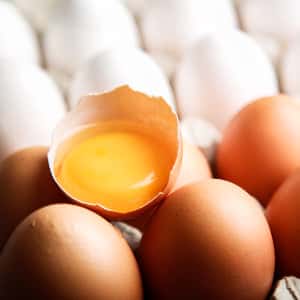
Q. I read in your column that a man who had taken lecithin for 30 years had never had high cholesterol. This worked for me!
I was taking statins but my joints hurt so I could hardly walk. I started taking lecithin and now my cholesterol is normal. Thank you.
A. A French pharmacist discovered lecithin in the mid-19th century. It is a key component of egg yolks. Although it is often said to lower cholesterol, the European Food Safety Authority concluded in 2010 that there was inadequate proof to recommend lecithin or its active ingredient phosphatidylcholine for this purpose. Nonetheless, it appears that it works well for you.
Another reader, Juliet, was also discouraged from taking a supplement to lower cholesterol on the grounds of ineffectiveness. Her rejoinder, like yours, was, “it works for me!”
“My LDL ran between 120-130. My triglycerides were low because of taking fish oil and my HDL is on the high end of normal because I eat a healthy diet. I have struggled my whole life with marginally high LDL. I have taken psyllium tablets and that was somewhat helpful.
“My new doctor suggested no flush Niacin 500 mg twice a day. My LDL now runs between 85-92. I was so amazed with such a significant change that I asked my doctor if he was sure that it was my blood. I have had 3 lipid panels in the last 1 1/2 year since I started the niacin and my total cholesterol is below 150 and my LDL remains very good.
“I saw another doctor who suggested that I discontinue the niacin because of a lack of effectiveness. I pointed out that it is very effective for me and I wasn’t about to stop it. Before I started the niacin, one of my doctors suggested that I try a statin drug but I did not want to risk the side effects. I believe that the niacin has been as helpful as a statin drug would be without the risks of side effects.”
Niacin can sometimes have side effects, most commonly flushing and itching. Sometimes these can be minimized by taking a low-dose aspirin in the preceding half hour. One reader reported that taking papaya enzyme pills with niacin can dramatically reduce the flushing. Like statins, niacin can also affect the liver. Anyone taking it daily to control cholesterol should ask the doctor to monitor liver enzymes periodically.
Those who would like more information on the benefits and risks of statins or niacin and other natural approaches to lowering cholesterol may be interested in our 8-page Guide to Cholesterol Control and Heart Health.

